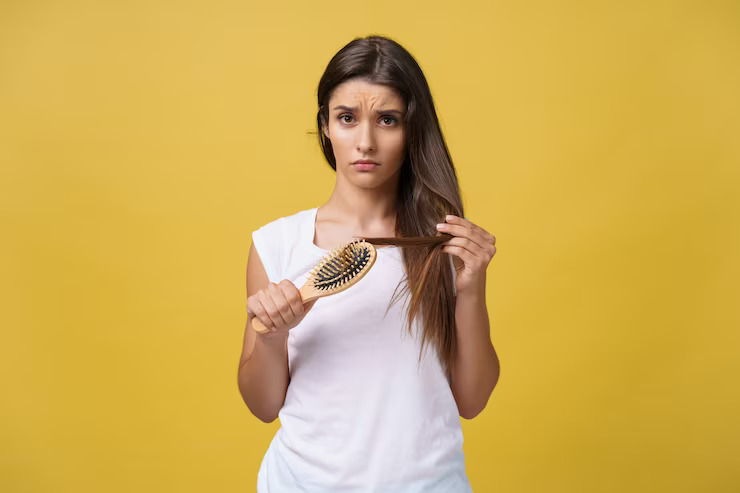
Hair Fall
Hair fall, medically known as alopecia, is a common condition that can affect individuals of all ages and genders. While it’s normal to lose some hair daily, excessive hair fall may indicate an underlying issue that requires attention. Various factors contribute to hair fall, and understanding the causes can guide effective management.
Common Causes of Hair Fall:
Chlamydia: Caused by the bacterium Chlamydia trachomatis, it often presents with no symptoms but can lead to serious complications if left untreated.
Genetics: Hereditary factors play a significant role in determining hair loss patterns. If there is a family history of baldness or thinning hair, it may contribute to one’s susceptibility.
Hormonal Changes: Hormonal fluctuations, such as those during pregnancy, childbirth, menopause, or thyroid disorders, can influence hair growth cycles and lead to increased hair fall.
Medical Conditions: Certain medical conditions, like alopecia areata, autoimmune diseases, and chronic illnesses, can contribute to hair loss.
Nutritional Deficiencies: Inadequate intake of essential nutrients, such as iron, zinc, and vitamins, can impact hair health and contribute to hair fall.
Stress and Anxiety: Emotional and physical stress can disrupt the normal hair growth cycle, leading to increased shedding.
Diet and Lifestyle: Poor diet, lack of proper hydration, and unhealthy lifestyle choices can negatively impact hair health and contribute to hair fall.
Prevention and Management:
Balanced Diet: Consuming a well-balanced diet rich in vitamins, minerals, and proteins supports healthy hair growth. Include foods like fruits, vegetables, lean proteins, and whole grains in your diet.
Good Hair Care Practices: Gentle washing, avoiding excessive heat styling, and using mild shampoos and conditioners can help maintain the health of the hair and prevent unnecessary breakage.
Stress Management: Practices such as meditation, yoga, and other stress-reducing techniques can help manage stress levels, positively impacting hair health.
Medical Consultation: If experiencing persistent or severe hair fall, it’s essential to consult a healthcare professional or a dermatologist. They can identify the underlying causes and recommend appropriate treatment options.
Topical Treatments: Depending on the cause, topical treatments like minoxidil may be recommended to promote hair regrowth.
Prescription Medications: In some cases, prescription medications may be prescribed to address hormonal imbalances or other medical conditions contributing to hair fall.
While some degree of hair fall is normal, significant and persistent loss requires attention. Early intervention, proper diagnosis, and lifestyle adjustments can contribute to maintaining healthy hair and preventing further hair fall. Individualized treatment plans based on the specific causes of hair fall are essential for effective management.

